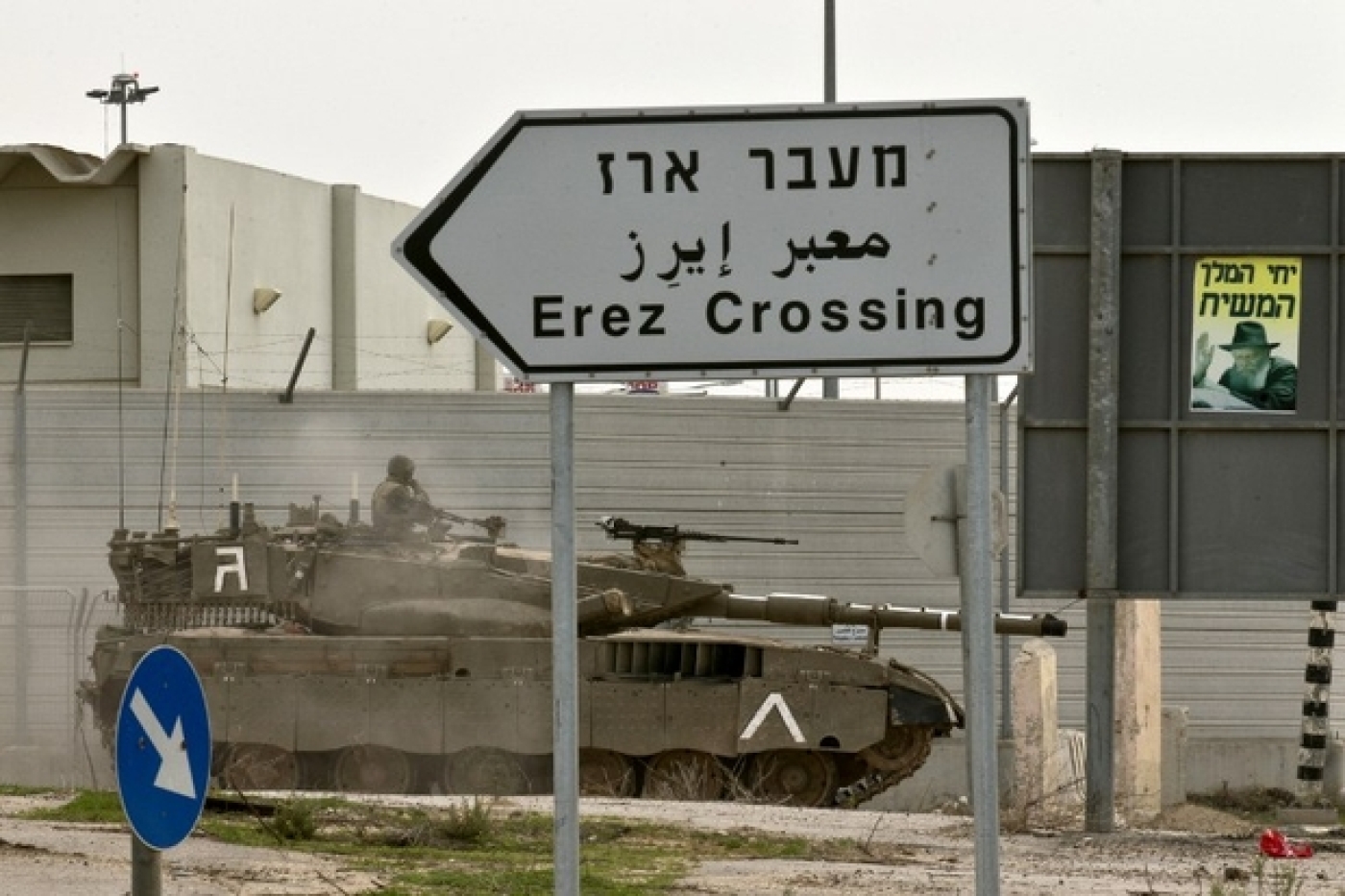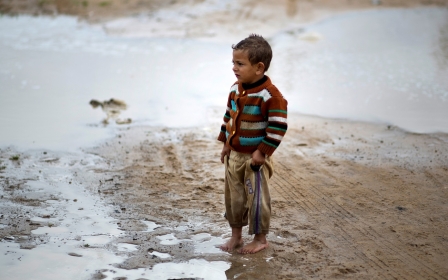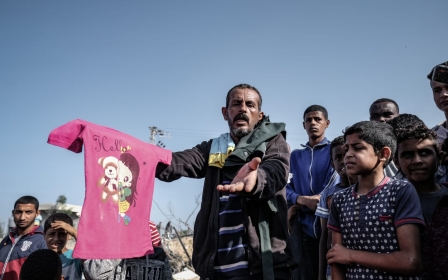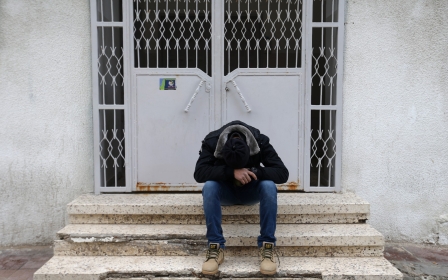Why I cannot receive my Martin Adler Prize in Gaza
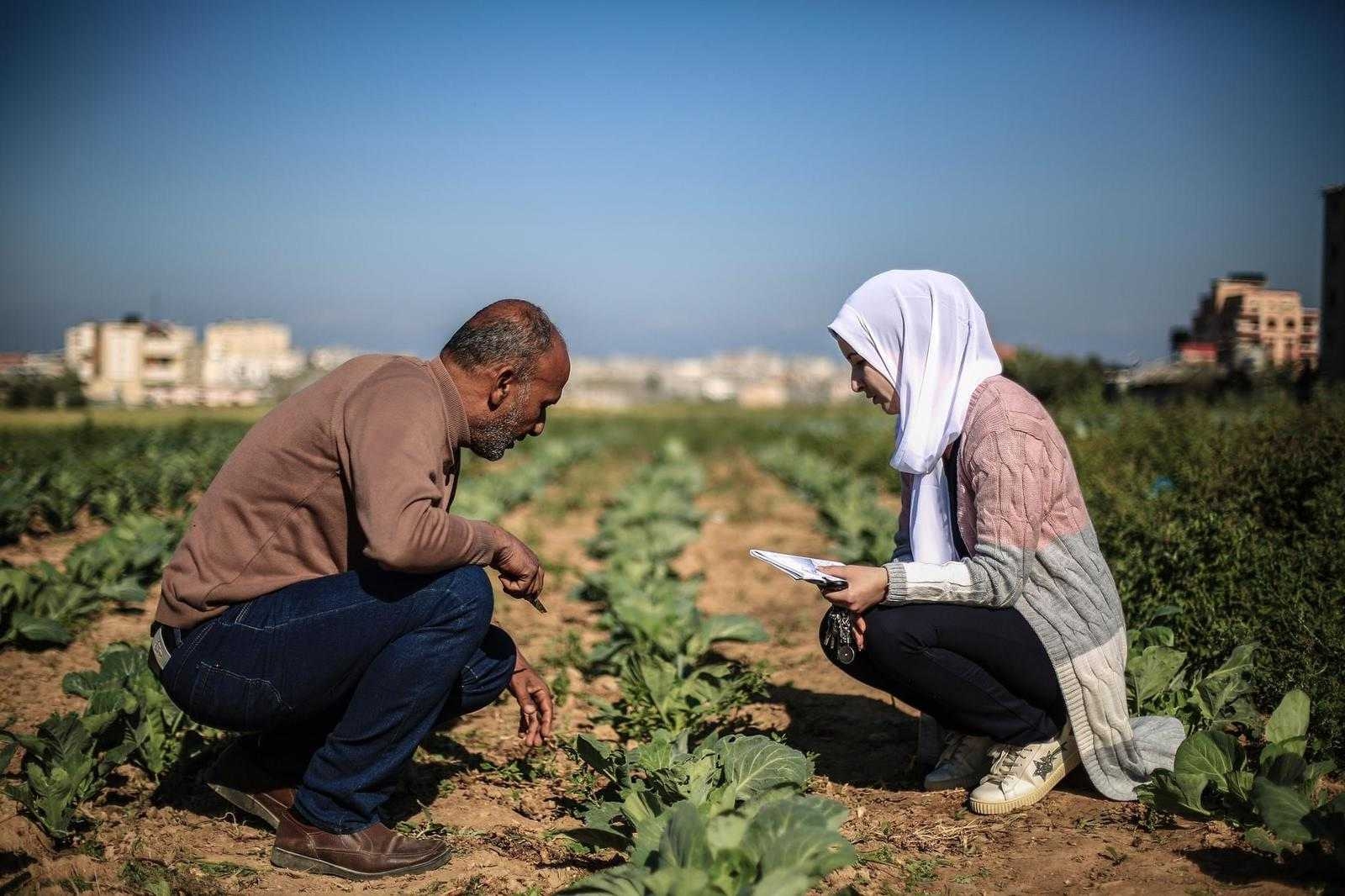
Five months after I won the Martin Adler Prize from the Rory Peck Trust, and a few weeks after Israeli authorities determined that my crystal trophy was not a security threat, I still cannot receive my award.
Last November, the London-based Rory Peck Trust, an international NGO that supports news gatherers around the world, announced the winners of its annual awards, which recognise the work of freelance journalists and filmmakers. It was established after freelance cameraman Rory Peck was shot and killed in Moscow in 1993.
A journalist awarded a prize for reporting on the occupation's abuses cannot pay the costs of that same occupation violating her basic rights
I was awarded the prize for my reporting for Middle East Eye from Gaza. A few days after announcing the winners, the Rory Peck Trust shipped the trophy to my address in the Gaza Strip in December 2020. But while the other winners received their trophies within days of shipping, mine was held by Israel for security checks.
Any shipment to Gaza usually takes around a week to reach the occupied Palestinian territories, and then more time to be cleared by Israeli authorities. I expected some delay, but as the average delivery time of parcels sent from the UK to locations worldwide is between two and eight days, I hoped it would arrive soon.
My hopes were soon dashed. Two months later, I received an email from customs clearance - the beginning of a long journey of security checks and other procedures.
New MEE newsletter: Jerusalem Dispatch
Sign up to get the latest insights and analysis on Israel-Palestine, alongside Turkey Unpacked and other MEE newsletters
Over the next two months, I had to provide numerous documents and fill out various forms attesting to the nature of the package. But even after having sent my ID, proof of payment for the trophy, the supplier invoice and proof that the trophy was for personal use, among other documents, I received a call from the customs clearance coordinator, who told me that even after the parcel was released from Israeli customs, getting it into Gaza would be another story.
Suffocating blockade
I continued following the required procedures, while also looking for couriers permitted to deliver parcels from the occupied West Bank to Gaza. In the first week of April, I was sent a form in Hebrew and English by the Israeli tax authority to provide my personal details.
What struck me the most while filling in this form was that as a Palestinian from Gaza, where the Israeli occupation dismantled its settlements and withdrew its forces in 2005, I had never had to deal directly with Israeli bodies or fill out application forms in Hebrew.
For the first time since the Gaza blockade was imposed, I realised there was something worse than the strangling hurdles and restrictions imposed on us for the past 15 years. It was the reality of the occupation, where a Palestinian in her own country has to fill out application forms in the language of her occupier to get approval for basic human rights. As a journalist who reports on human rights violations committed by Israeli occupation forces, I found this humiliating and painful.
For the past 15 years, Israel has imposed severe restrictions on the movement of people and goods in and out of Gaza, as part of the blockade launched in 2006 and tightened in 2007 after Hamas won legislative elections in the enclave.
Such restrictions, however, have been part of Palestinians’ daily lives since the 1948 Nakba. Prior to the establishment of Israel and the occupation of Palestine, for decades, Palestinians were commercially connected to Europe and the Middle East via the Mediterranean Sea. After 1948, Israel forcefully controlled all exit and entry points, preventing people from travelling or exchanging goods without its permission.
Prohibited packages
Amid this backdrop, to get my trophy into Gaza from Ramallah in the occupied West Bank - around 100 kilometres, or a two-hour drive away - I needed to coordinate with a licensed courier permitted by Israeli authorities to deliver parcels to Gaza. I contacted DHL and FedEx, the only two well-known international couriers that operate in both the occupied West Bank and Gaza, to start coordinating the delivery of the trophy once it was released from Israeli customs.
Both told me that only paper documents could be sent from the West Bank to Gaza, and vice versa. Parcels containing other materials were not permitted. “This ban comes from the Israeli side, and we are not responsible for it,” a FedEx representative in the occupied West Bank told me over the phone. “Israel prohibits any mail other than paper mail into Gaza.”
For years, Israel has imposed severe restrictions on shipments to Gaza, under the pretext that Hamas could be smuggling weapons, such as knives, drones and communications equipment. It regulates the entrance of all materials into Gaza, including items it classifies as “dual-use”, requiring special permission to enter; these include items “whose use is overwhelmingly civilian and critical for civilian life”, notes Gisha, an Israeli human rights group.
For ordinary parcel post, intensive security checks can delay delivery for many months. Despite the exhausting procedures connected to receiving my trophy, and even as I gradually lost hope, I continued pushing for its release from Israeli customs.
After completing all the requirements, I finally received a phone call this month from customs clearance, informing me that the trophy would be finally released - once I paid 803 Israeli shekels (around $250). I was presented with an invoice that included categories such as system fees, security check fees, computer fees and other fees covering the costs of storing the parcel for five months.
When I asked for clarification, a customs clearance employee told me in an email that “all FedEx parcels that pass through Israeli customs and security checks are charged high costs, especially if the address is not Israeli”. This means that regardless of the nature of the parcel, as long as it is sent to a Palestinian address, it is automatically security-checked and charged high costs.
Surveillance and control
As these security checks constitute a significant part of Israel’s surveillance and control mechanism imposed upon Palestinians, Israel has gradually been privatising the process. The Erez land crossing into Gaza was among the first checkpoint to be privatised in January 2006; today, at least 14 Israeli checkpoints, including two border crossings between Gaza and Israel, have been privatised.
While the costs of privatised checkpoints are estimated at upwards of $80m annually, Palestinians bear a high proportion of these costs tied to their personal and commercial surveillance and control. Under the Israeli occupation, victims pay for the tools of oppression that are systematically used against them.
Today, I am writing this article on the desk where I recorded my prize acceptance speech, after having informed the customs clearance body that I refuse to pay to receive the trophy. A journalist awarded a prize for reporting on the occupation’s abuses cannot pay the costs of that same occupation violating her basic rights.
The views expressed in this article belong to the author and do not necessarily reflect the editorial policy of Middle East Eye.
This article is available in French on Middle East Eye French edition.
Middle East Eye delivers independent and unrivalled coverage and analysis of the Middle East, North Africa and beyond. To learn more about republishing this content and the associated fees, please fill out this form. More about MEE can be found here.



